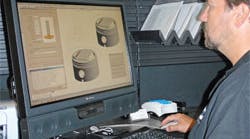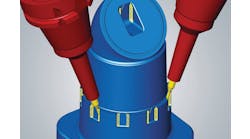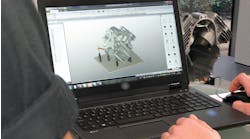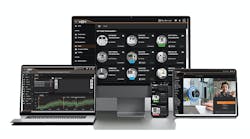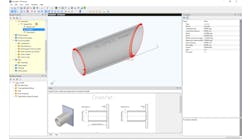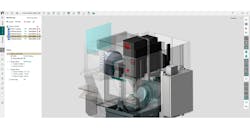CAMWorks simplifies complex programming tasks to assist with CP Pistons’ automation.
CP Pistons, Irvine, CA, develops and manufactures pistons for high-performance race vehicles and the automotive aftermarket, including vintage cars, motorcycles, and marine and aircraft engines. Recently it bought Carrillo Industries, manufacturers of high-performance connecting rods, to expand its portfolio of complex parts offered on short lead times.
The expansion caused CP Pistons to take a critical look at its manufacturing and business processes. It found that while its proprietary programming system was capable of standard machining, the complexity of the market had advanced. This forced the shop to rely too heavily on other CAM systems to perform time-consuming manual operations for custom features on its forged racing pistons and rods. Repeat orders with small changes were being completely reprogrammed in the old CAD/ CAM system, leading to misinterpretations and doubling process times.
It found better CAM programming in Geometric Technologies’ CAMWorks software. CAMWorks produces efficient machining programs directly from solid models, and seamless integration between CAMWorks and SolidWorks provides interoperability and data integration so that manufacturers can engineer, design and build products faster and more accurately.
While CAMWorks integrates with SolidWorks for design functions, it has an open Application Programming Interface (API) platform that can be customized to work with CP Pistons’ order booking system. It also has feature recognition that allows it to identify ideal machine toolpaths based on different piston geometries (e.g., holes, bosses, pockets, perimeter cuts), and a knowledge database (TechDB) feature that makes data storage/retrieval more efficient.
“CAMWorks was the only tool we found out there that could meet all our demands, and its flexible approach on APIs really helped us move forward,” said Karl Ramm, senior technology manager and project developer for CP Pistons.
“Before CAMWorks,” he continued, “we programmed each custom piston order manually, slowing down our manufacturing. Each job would take approximately 10 minutes for non-complex pistons and up to 40 minutes for complex ones — and that’s programming time alone.”
